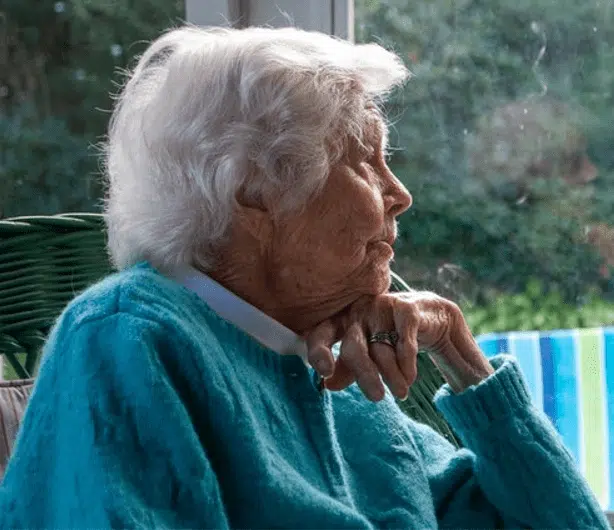When to Consider Home Health Care
Posted in When to Consider Home Health Care
Asking for help can be hard. As we age, our self-esteem is closely tied to personal independence, meaning that asking for help also means acknowledging that we are getting older.
Fortunately, solutions exist. A well-crafted home health care plan can allow an older adult to remain comfortable, safe, and happy in their long-time home without a major upset in routine.
For many older adults, the decision to begin home health care is only made after a serious illness or accident, making it harder to establish a care plan on their own terms.
Rather than waiting for a sudden change, older adults and their loved ones should consider looking for early signals that it might be time to consider help. 
Read on to learn about some of the most signs you may be ready for home health care.
-
Missing Family and Community Events
One of the best things about growing older is having more time for friends and family, but sometimes it can be difficult to get out of the house alone.
An in-home caregiver can assist in scheduling and preparing for travel and ensure you remain comfortable during the function, allowing you to stay engaged with your family and community. Some signs you may need help staying socially active include:
- Missing or forgetting family functions
- Difficulty traveling alone, either by public or private transportation
- Losing touch with friends and family
- No longer engaging with hobbies or social groups you enjoy
- Feeling lonely
Social isolation can have lasting impacts on mental health and cognitive ability, but by bringing a caregiver into your home, you can not only stay active outside your home, but find companionship on quiet days as well.
-
Too Many Chores
If it is starting to feel like there are too many hours in the day to stay ahead of housework, or if you are having trouble safely completing tasks you used to do yourself, it may be time to ask for help. Common signs that a helping hand may be in need include:
- Difficulty throwing out trash
- Surfaces in the home are always messy or dirty
- Broken appliances or burned out lightbulbs
- Increasing clutter
- Bugs and rodents
- Spoiled food, expired medication or hygiene products
- Empty refrigerator or pantry
By staying ahead of these tasks with a helping hand, you not only can enjoy more free time, but you are ensuring that your home is safe, lower your risk of illness and eliminate potential fall hazards, leading to a happier, healthier home.
-
Difficulty With Daily Living Activities
Whether due to illness, a loss of mobility, or forgetfulness, having trouble with personal tasks like meal preparation, bathing, dressing, and remembering medication can have serious impacts on your long-term health and quality of life.
Admitting trouble with some or all of these “everyday” activities can feel embarrassing, but safely and regularly completing these tasks is critical to remaining healthy and independent. You may want to consider asking for help if you notice any of the following:
- Remembering to brush your teeth twice a day
- Difficulty with medication schedules
- Trouble preparing healthy meals or grocery shopping
- Unsteadiness when standing, sitting, or getting into or out of bed
- Having a hard time dressing or frequently running out of clean clothes
- Trouble reaching the restroom in time or experiencing accidents while sleeping
By making the decision to ask for help with these tasks, you are ultimately taking control of your own aging process. Not only that, but you are also preserving your ability to complete tasks you can still perform by staying healthy!
-
Health Troubles
Many people choose to wait until a serious medical event, like a chronic illness or in-home accident before considering asking for help, thinking ahead about your medical needs and asking for help early can provide a huge relief. Consider if you are noticing any of the following:
- Increased medical appointments and/or difficulty making appointments
- A growing list of medications to manage or trouble staying on schedule
- Moments of confusion or difficulty with memory
- Feeling of unsteadiness or avoiding activities due to fear of falling
- Changes in weight
- Sudden changes in mood, loss of energy/motivation, or regularly feeling sad
Having a second person in your home and an existing relationship with a caregiver while you are in generally good health can make a huge difference in your overall health outlook. By getting to know you now, caregivers develop a good baseline for your current wellbeing, meaning they might help you catch changes in your health faster than if you were alone. Also having a helping hand ensures you can stay on top of medical tasks and appointments to better preserve your health for the long term.
Making the call
Having the right mindset is key when considering in-home care. Rather than thinking of in-home care as an admission that you cannot perform certain tasks, think of it as a tool to help you maintain your current level of independence, health and safety. Further, by accepting help, you are giving your friends and loved ones the peace of mind that you are safe and healthy.
In-home care is not a one-size-fits all solution, and the best care plan is different for every person. By planning ahead and being an active participant in the process, you are ensuring that your vision for the future is being followed.
SelectCare has helped New Yorkers live happier, healthier lives in their long-time homes for more than 37 years. To learn how SelectCare can help you and your family, call SelectCare today to learn about our caregiver selection process and in-home care services, or download our free in-home care guide.
